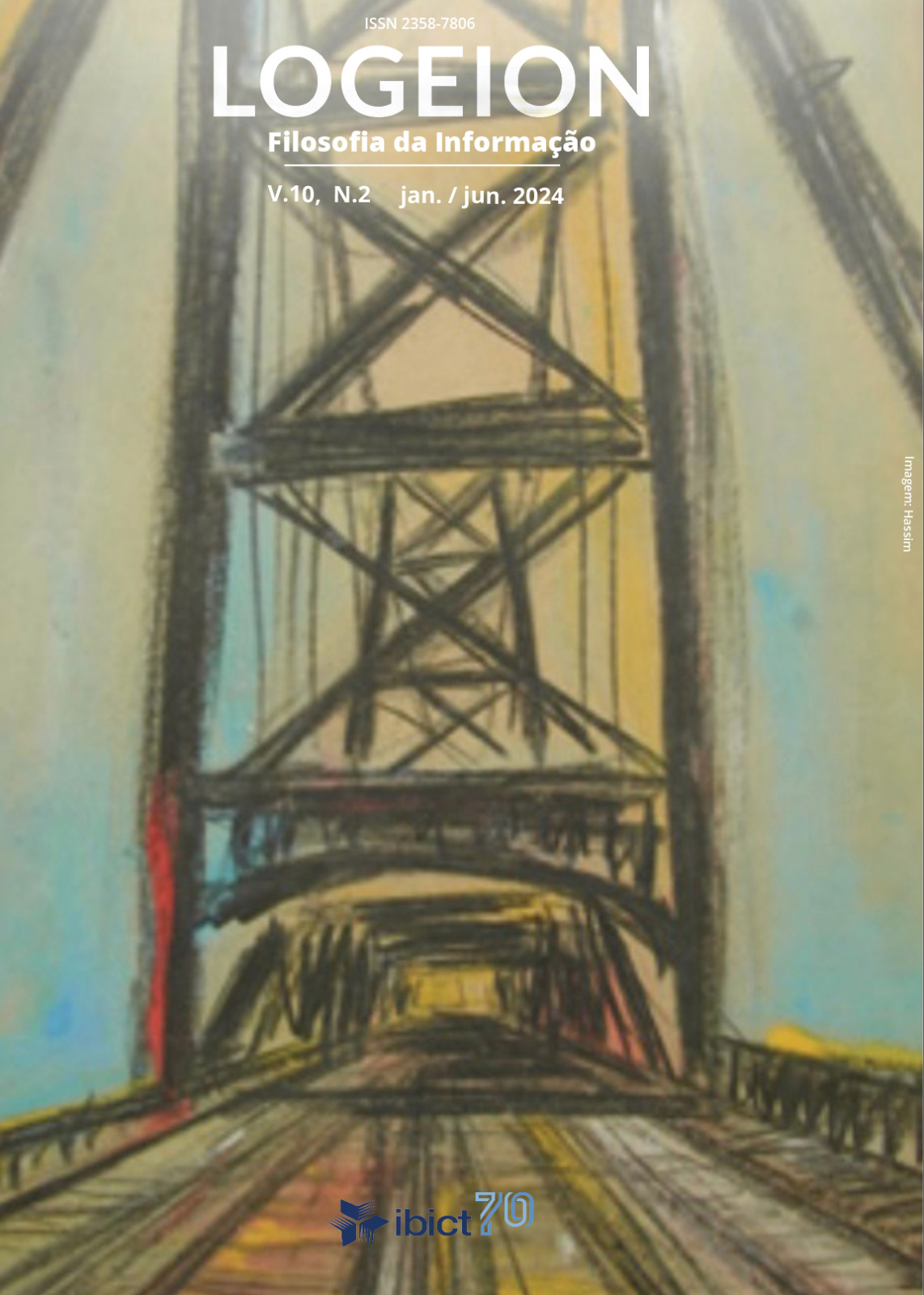The ARCHAEOLOGICAL METHOD IN ANGELA DAVIS AND BELL HOOKS FOR THE CONSTRUCTION OF DECOLONIAL NARRATIVES
representations of violence against black women
DOI:
https://doi.org/10.21728/logeion.2024v10n2e-6870Keywords:
archeology of slavery, black woman, intersectionality, historical narrativesAbstract
This article aims to highlight the impact of archaeological research methodology on the works of Angela Davis (2016) and bell hooks (2023), respectively, “Woman, Race and Class”, and “Ain’t I a Woman: Black Women and Feminism”, which seek to re-examine, in an immersive way, the experience and fight against the violence of slavery in the history of black women. American black feminist intellectuals open the doors to scientific thought that is less tolerant of misogyny, racism, and other forms of relational and institutional violence, in order to break with the tradition of positivist historiography. This is documentary research, which includes a critical analysis of the aforementioned works, based on the philosophical method based on the historical investigation of Michel Foucault (2008). The importance of recognizing these literatures as esteemed representatives and invaders of the archeology of knowledge is highlighted, and the relevance of new productions that enable a social representation coherent with the reality of discourses about black women, contributing to a historical narrative told by the oppressed person, with the aim of opening up gaps for the effective break with the epistemologies that legitimize and favor systems of oppression. Through an archeology of slavery, beyond the colonial discursive formations of economic, political and social practices, philosophers explore the interconnections between different narratives, revealing the complex web that sustains power relations, and how marginalization is perpetuated. The conclusion points to the importance of recognizing and valuing the experiences of black women, highlighting the need to give voice to these historically silenced narratives.
Downloads
References
ANZALDÚA, Gloria. Falando em línguas: uma carta para as mulheres escritoras do terceiro mundo. Estudos Feministas, 2000.
BUTLER, Judith. A força da não-violência. Boitempo, 2021.
CORRÊA, E. Q. A repercussão do maio de 68 no pensamento de Michel Foucault. Revista Angelus Novus, [S. l.], n. 11, p. 165-178, 2017. DOI: 10.11606/ran.v0i0.112448. Disponível em: https://www.revistas.usp.br/ran/article/view/112448/134013. Acesso em: 19 nov. 2023.
DAVIS, Angela. Mulheres, raça e classe. Tradução de Heci Regina Candiani. São Paulo: Boitempo, 2016.
FERREIRA, Laíssa. Resenha de Mulheres, raça e classe de Angela Davis. Blogs de Ciência da Universidade Estadual de Campinas: Mulheres na Filosofia, v. 6, n. 12, 2020, p. 1-8. Disponível em: https://www.blogs.unicamp.br/mulheresnafilosofia/wp-content/uploads/sites/178/2020/12/Resenha-Davis.pdf
FOUCAULT, Michel. Arqueologia do Saber. 7. ed. Tradução de Luiz Felipe Baeta Neves. Rio de Janeiro: Forense Universitária, 2008.
FOUCAULT, Michel. Vigiar e Punir: história da violência nas prisões. Petrópolis: Editora Vozes, 1987.
hooks, bell. Teaching to transgress. Education as the practice offreedom. Nova York/Londres: Routledge, 1994.
hooks, bell. Ensinando pensamento crítico: sabedoria prática. Tradução: Bhuvi Libanio. São Paulo: Elefante, 2020.
hooks, bell. E eu não sou uma mulher? Mulheres negras e feminismo. Tradução Bhuvi Libanio. 12. ed. Rio de Janeiro: Rosa dos. Tempos, 2023.
KILOMBA, Grada. Descolonizando o conhecimento: uma Palestra-Performance
de Grada Kilomba. Tradução: Jessica Oliveira - Disponível em:
https://youtu.be/iLYGbXewyxs. Acesso em: 10 dez. 2023.
LOSURDO, D.; DASTOLI, C. A. Como nasceu e como morreu o "marxismo ocidental". Estudos de Sociologia, Araraquara, v. 16, n. 30, 2011. Disponível em: https://periodicos.fclar.unesp.br/estudos/article/view/3897. Acesso em: 10 nov. 2023.
SILVINO, A. M. D. Epistemologia positivista: qual a sua influência hoje?. Psicologia: Ciência e Profissão, v. 27, n. 2, p. 276–289, jun. 2007. Disponível em:
https://www.scielo.br/j/pcp/a/JBzfcggXPYhTq9TFgbB6JpH/. Acesso em: 20 nov. 2023.
SANTOS, S. Boaventura. Pela Mão de Alice. São Paulo: Cortez Editora, 1995.
Downloads
Published
Versions
- 19/04/2024 (2)
- 21/03/2024 (1)
Issue
Section
License
Copyright (c) 2024 Bruna Lessa, Maria Luiza Ferreira Crosara

This work is licensed under a Creative Commons Attribution-NonCommercial-ShareAlike 4.0 International License.
The journal is published under the Creative Commons - Attribution - Noncommercial - Share Alike 3.0 Brazil.
The published work is considered collaboration and therefore the author will not receive any remuneration for this as well as anything will be charged in exchange for publication.
All texts are responsibility of the authors.
It’s allowed partial or total reproduction of the texts of the magazine since the source is cited.














